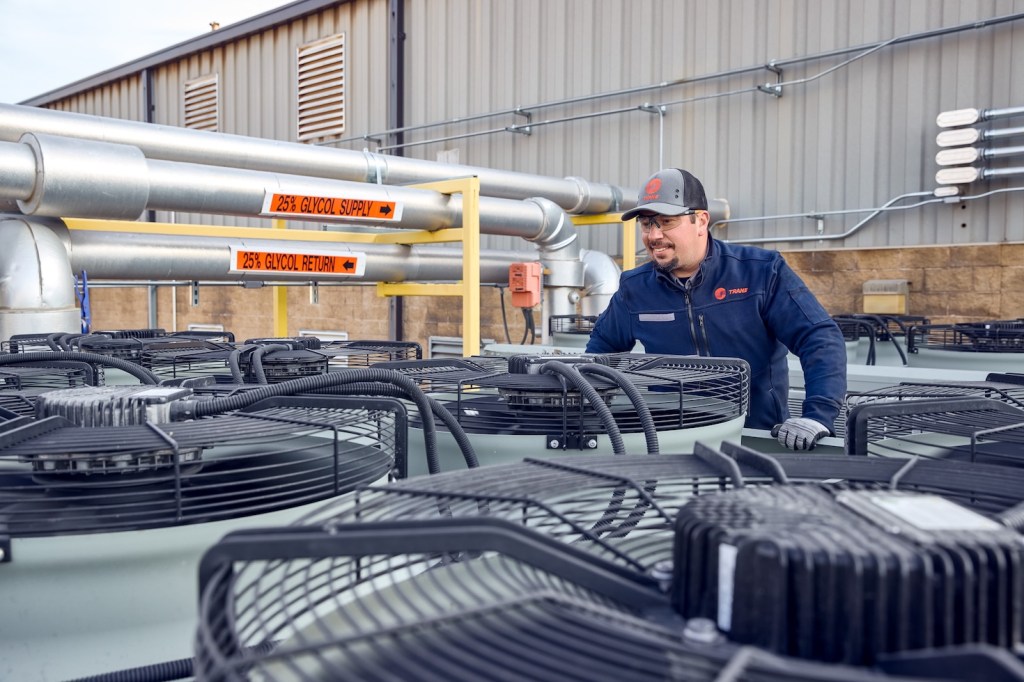HVAC vendor Trane hires aerospace engineer to lead tech and sustainability
Mauro Atalla, previously with Collins Aerospace Systems, joins the HVAC company on Jan. 5. Read More

Send news about sustainability leadership roles, promotions and departures to editor@trellis.net. Read more Executive Moves.
Trane Technologies, which has pledged to help customers reduce emissions from heating and cooling systems by 1 billion metric tons by 2030, has named aerospace engineer Mauro Atalla as chief technology and sustainability officer, effective Jan. 5.
Atalla replaces Paul Camuti, who is retiring as executive vice president and chief technology and sustainability officer after 13 years in the role.
Atalla will report to Trane CEO and Chair Dave Regnery, who has long championed the link between Trane’s technology development roadmap and cutting the company’s greenhouse gas emissions.
“Mauro will be a great addition to our team as we continue to innovate for our customers, create value for our shareholders and contribute to a sustainable future,” Regenery said.

Atalla was most recently senior vice president of engineering and technology at Collins Aerospace Systems, responsible for technology development, product safety, cybersecurity and sustainability. He has a doctorate from Virginia Tech in engineering mechanics.
Heating, ventilation and air conditioning systems could account for 25 percent of emissions by 2050, as global temperatures rise. In a Dec. 18 update about its greenhouse gas footprint, Walmart said heating and cooling costs could rise for two-thirds of its locations by 2030 and 80 percent of its facilities by 2050. Aging refrigeration systems accounted for 55 percent of Walmart’s Scope 1 and 2 emissions in 2023 and were a big reason the world’s largest retailer will report a 3.9 percent increase for that year.
Trane’s Gigaton Challenge, launched in 2019, commits to helping its customers reduce the emissions related to the company’s HVAC equipment by 1 billion by 2030. It focuses on:
- Improved energy efficiency
- Systems to reduce food spoilage during transportation
- A transition to low global-warming potential refrigerants
So far, Trane figures it has reduced customer footprints by 157 million metric tons.














